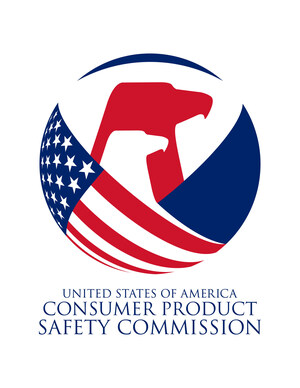
WASHINGTON, May 27, 2011 /PRNewswire-USNewswire/ -- The U.S. Consumer Product Safety Commission (CPSC) is urging consumers in the Atlanta area to check their homes for counterfeit smoke alarms. About 18,500 counterfeit photoelectric smoke alarms were distributed for free in the Atlanta area between 2006 through May 2011 as part of the Atlanta Smoke Alarm Program. The smoke alarms can fail to alert consumers in the event of a fire.
(Logo: http://photos.prnewswire.com/prnh/20030904/USCSCLOGO)
The Atlanta Fire Rescue Department, which distributed the free smoke alarms as part of a fire safety campaign, is recalling the smoke alarms and is working to provide free smoke alarm inspections and replacement units. Consumers who received these alarms should immediately contact the Atlanta Smoke Alarm Recall Hotline at (404) 546-2733.
The counterfeit alarms can be identified by a silver Underwriters Laboratories' UL label on the back and three sets of vented slots on the front. The UL label is counterfeit. The alarms do not have a model number or brand name printed on them. "Important: Refer to Manual for Operating Instruction and Safety" and "Do Not Paint" are stamped into the plastic on the front of the alarm in both English and German. The package states, "This Smoke Alarm save [sic] life and property by early warning!" Claims that smoke alarms can "save property" are not typical claims for smoke alarms. The packaging states, "10 YEAR LIFE LITHIUM BATTERY," but the battery included with the smoke alarm is a carbon zinc, industrial, heavy duty battery, which will power the alarm for only one year.
CPSC's independent testing of the smoke alarms determined that the alarms pose a life safety hazard to the occupants in the event of a fire. The alarms perform poorly and inconsistently and do not meet voluntary standards requirements in Underwriters Laboratories' (UL) 217, Single and Multiple Station Smoke Alarms and the National Fire Protection Association (NFPA) 72, Fire Alarm and Signaling Code. The smoke alarms' sensitivity settings varied greatly between the alarms tested. Some alarms did not respond within an adequate time for life safety and other alarms did not respond at all.
CPSC has worked with the voluntary standards organizations to improve smoke alarm performance and reliability. Counterfeit alarms can put lives at risk. Working smoke alarms that meet the voluntary standards are proven to save lives. CPSC urges consumers to install smoke alarms on every level of the home, outside sleeping areas and inside bedrooms. Replace batteries at least once every year and test the alarms once a month.
Counterfeit UL Label
The U.S. Consumer Product Safety Commission is charged with protecting the public from unreasonable risks of injury or death associated with the use of the thousands of consumer products under the agency's jurisdiction. Deaths, injuries and property damage from consumer product incidents cost the nation more than $800 billion annually. The CPSC is committed to protecting consumers and families from products that pose a fire, electrical, chemical, or mechanical hazard. CPSC's work to ensure the safety of consumer products - such as toys, cribs, power tools, cigarette lighters, and household chemicals – contributed to a significant decline in the rate of deaths and injuries associated with consumer products over the past 30 years.
Under federal law, it is illegal to attempt to sell or re-sell any recalled product.
To report a dangerous product or a product-related injury, call CPSC's Hotline at (800) 638-2772, teletypewriter at (800) 638-8270, or visit www.cpsc.gov/talk.html. Consumers can obtain this press release and recall information at www.cpsc.gov. To join a free e-mail subscription list, please go to www.cpsc.gov/cpsclist.aspx.
CPSC Hotline: (800) 638-2772
CPSC Media Contact: (301) 504-7908
SOURCE U.S. Consumer Product Safety Commission






Share this article